Housing and rent – how generation feels it was ‘sold a lie’

By Dave Harvey, Business and environment correspondent, BBC Points West
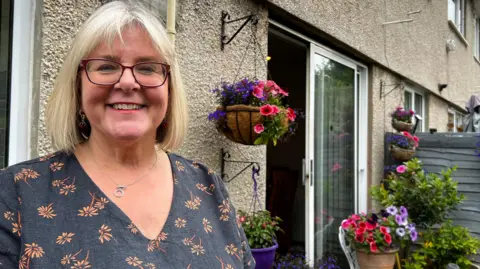 BBC
BBCHousing and rental prices are key issues for voters at the general election – and one that several have got in contact with us about.
Bristol, for example, is the most expensive place to rent outside of London and the problem is leading to more people having to find alternative accommodation.
Sharon Cove is among the many people who got in touch with the BBC via Your Voice, Your Vote and told us about her son’s situation.
“I just feel so sorry for the young people that don’t have it as good as I did,” she says.
Like most parents, Sharon wants the best for her son. But at 31, Dan has had to move back in with mum and dad.
He runs a small business, a record shop in Bristol selling successfully to music lovers. He can afford the rent on the shop, but not the rent on a flat as well.
“The price of private rentals is huge,” Sharon complains. She says it makes it impossible for young people to move on, adding the issue is them “not being able to get on the housing ladder, the massive deposits they need to save up”.
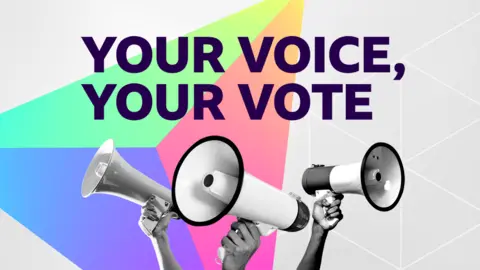
Her son is far from alone. Recent official statistics found that 40% of people aged 16-34 are now living with their parents, 6.7 million people in all.
Bristol is the most expensive place to rent in the UK outside London, according to recent figures from the Office for National Statistics.
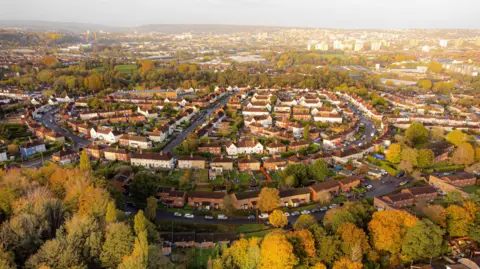 PA Media
PA MediaThe average rent in the city rose 9% to £1,734 a month in February 2024.
The housing crisis has become her number one issue in this election. Not for her generation, but her son’s.
“I think they were sold a lie. I think they were sold go to school, work hard, go to uni, get a good job and life will be good for you,” she says.
“And it just isn’t – not for them right now.”
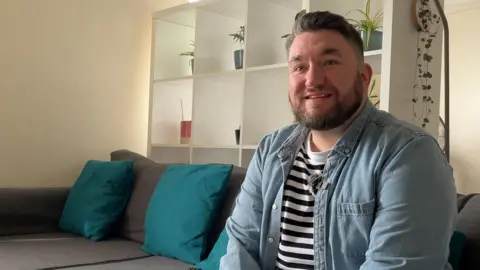
Shôn Douglas is battling the same problem, 40 miles up the motorway.
The 39-year-old rents a flat in Cheltenham, where he says prices have “spiralled out of control”.
He was one of dozens of people who contacted us using our Your Voice, Your Vote feature. We asked people what topic matters most in this election, and many told us housing is not getting enough attention
Mr Douglas has a good job, but can only afford a small one-bedroom flat.

Landlords, he says, “are asking for eye-watering rents for even studio apartments”.
For him, there is a clear political solution: rental reform.
The last government tabled legislation to regulate the rental market, including outlawing so-called “no-fault” evictions, but the bill died when the election was called.
Several parties are now promising similar policies in their manifestos.
But whoever wins, Mr Douglas says: “It just needs to get done, the inertia is frustrating, they just need to get on with it.”
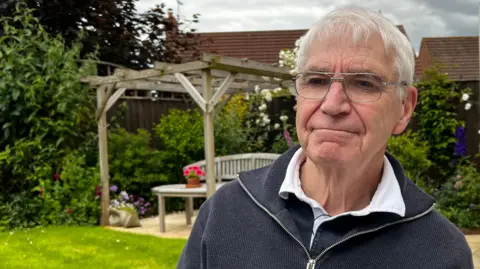
Housing, or the lack of it, is not invisible in this election.
All the political parties address it in their manifestos, but it is some way down the list.
Former social worker Pete Lyndon thinks housing should be in the top three, saying it is a “key issue”.
“I think it’s up there with national health service, with the cost of living,” he adds.
For decades, Mr Lyndon worked as a social worker, often helping people struggling with homelessness.
“I’ve seen it first hand. I’ve seen people in housing that’s unfit for human habitation, water running down the walls,” he says.
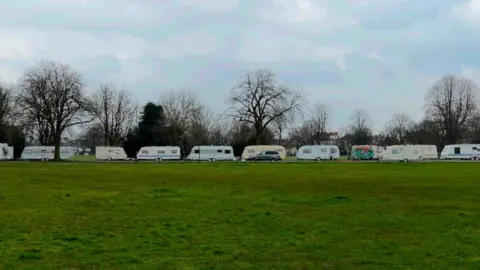
In Bristol, where he has now retired, there are 800 people living in vans, many without basic facilities.
The city ranks third in the UK for people living rough on the streets.
“At the last count, 80 people were counted on the street – and that’s the ones they could find,” he says.
He accepts that housing is a hugely complex problem.
Mortgages are linked to interest rates and the economic markets.
Council-owned housing relies on the finances of local councils, currently in dire straits.
But, the 74-year-old recalls, the country has managed to build in tough times before.
He says: “After World War Two, as a country, we were extremely hard up, and yet governments of both colours did manage to build housing for ordinary people.
“It is possible, if it’s seen as a serious enough issue.”
‘Massive problems’
Both the Conservatives and Labour are pledging to build 1.5 million new homes over the next parliament, equating to 300,000 a year.
That is at least 100,000 more than has been achieved in recent years.
The Liberal Democrats want whole new garden cities built.
The Green Party add to that ambition, insisting they will build 150,000 new social homes, owned by councils or housing associations.
But not everyone is a fan of new housing estates.
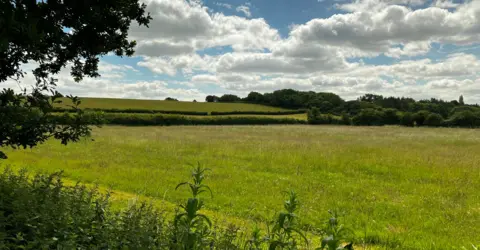
On the eastern fringe of Bristol, residents have been fighting plans by the local council to build 4,000 new homes on green fields.
Martin Roberts is angry at this local plan.
“Bristol is a big successful economic hub,” he says.
“I can understand why people want to come and live here.
“But is that a good reason for building on our green belt? I don’t think it is.”
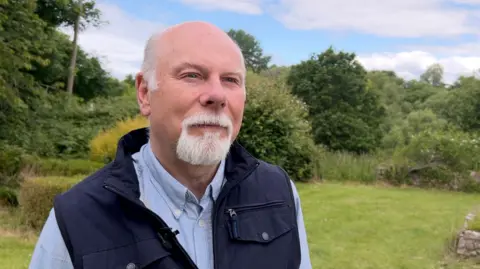
The retired accountant now lives in a small, quiet hamlet, just a mile from the east Bristol ring road. He accepts that “something” must be done.
“Housing has got massive problems in this country with people struggling to buy,” he says.
“Prices are constantly going up, rents are constantly going up.”
But like many in his rural area, he worries that it cannot take a sudden influx of people.
“We have no infrastructure, the northern fringe has the M4, the M5, Bristol Parkway station,” he adds.
“We have nothing – a couple of A-roads and a ring road that is mostly a car park.
“If you add thousands and thousands of extra homes on our doorstep, everything is going to grind to a halt.”
Policies and pledges
The Conservatives would build 300,000 homes a year, prioritising brownfield development. They would permanently waive stamp duty tax for first-time buyers of properties costing up to £425,000. This threshold was raised temporarily and is due to revert to £300,000 in March 2025. They have also proposed a new Help to Buy scheme.
Labour would reform planning rules, fast-forward development on brownfield and what it calls “grey belt” land such as car parks. The party has pledged 1.5 million new homes over five years. It wants to extend an existing scheme, which helps people get a mortgage with a smaller deposit and is backing more rights for renters.
The Liberal Democrats want additional social housing and new “garden cities”. They support local authorities that want to end the “right to buy” policy for council housing, ban no-fault evictions, make three-year tenancies the default, and create a national register of licensed landlords.
The Green Party would invest in new social housing, pledging to build 150,000 “affordable social homes”. They would ban no-fault evictions and introduce rent controls. They would set higher environmental standards for new builds and would require more affordable units.
Reform would fast-track planning, offer tax incentives for development on brownfield sites and give tax breaks to small-scale landlords. People born in the UK would be given priority for social housing.
What really matters to you in this general election? What is the one issue that will influence your vote? Click the button below to submit your idea, and it could be featured on the BBC.








